- Home
- Stephanie Laurens
The Lady Chosen Page 3
The Lady Chosen Read online
Page 3
Those had been much more frightening.
She’d told no one bar Harriet of those incidents, not her uncle Humphrey or her brother Jeremy or any other of the staff. There was no point rattling the servants, and as for her uncle and brother, if she managed to make them believe that the incidents had actually happened and weren’t a figment of her untrustworthy female imagination, they would only restrict her movements, further compromising her ability to deal with the problem. To identify those responsible and their reasons, and ensure no further incidents occurred.
That was her goal; the gentleman from next door would, she hoped, get her one step further along her road.
Reaching the tall wrought-iron gate set into the high stone wall, she hauled it open and whisked through, turning to her right, toward Number 12—
And crashed into a walking monument.
“Oh!”
She cannoned off a body like stone.
It gave not an inch, but it moved like lightning.
Hard hands gripped her arms above the elbows.
Sparks flared and sizzled, struck by the collision. Sensation flashed from where his fingers grasped.
He held her steady, stopping her from falling.
Also trapping her.
Her lungs seized. Her eyes, widening, clashed, then locked with a hard hazel gaze, one surprisingly sharp. Even as she noticed, he blinked; his heavy lids descended, screening his eyes. The planes of his face, until then chiseled granite, softened into an expression of easy charm.
His lips changed the most—from a rigid, determined line into curving, beguiling mobility.
He smiled.
She hauled her gaze back up to his eyes. Blushed.
“I’m so sorry. Pray excuse me.” Flustered, she stepped back, disengaged. His fingers eased; his hands slid from her. Was it her imagination that labeled the move reluctant? Her skin prickled; her nerves skittered. Oddly breathless, she hurried on, “I didn’t see you coming…”
Her gaze flicked beyond him—to the house at Number12. She registered the direction from which he’d been walking, and the trees along the boundary wall between Number 12 and Number 14, the only ones that could have hidden him during her earlier survey of the street.
Her fluster abruptly evaporated; she looked at him. “Are you the gentleman from Number 12?”
He didn’t blink; not a flicker of surprise at such a strange greeting—almost an accusation given her tone—showed in that charmingly mobile face. He had sable brown hair, worn slightly longer than was fashionable; his features possessed a distinctly autocratic cast. An instant, brief but discernible, passed, then he inclined his head. “Tristan Wemyss. Trentham, for my sins.” His gaze moved past her to the open gate. “I take it you live here?”
“Indeed. With my uncle and brother.” Lifting her chin, she drew a tight breath, fixed her eyes on his, glinting green and gold beneath his dark lashes. “I’m glad I caught you. I wished to ask if you and your friends were the purchaser who attempted to buy my uncle’s house last November, through the agent Stolemore.”
His gaze returned to her face, studying it as if he could read far more than she would like therein. He was tall, broad-shouldered; his scrutiny gave her no opportunity to assess further, but the impression she’d gleaned was one of quiet elegance, a fashionable facade behind which unexpected strength lurked. Her senses had registered the contradiction between how he looked and how he felt in the instant she’d run into him.
Neither name nor title meant anything to her yet; she would check in Debrett’s later. The only thing that struck her as out of place was the light tan that colored his skin…an idea stirred, but, held by his gaze, she couldn’t pin down the impression. His hair fell in gentle waves about his head, framing a broad forehead above arched dark brows that now drew into a frown.
“No.” He hesitated, then added, “We heard of the proposed sale of Number 12 in mid-January, through an acquaintance. Stolemore handled the sale, true enough, but we dealt directly with the owners.”
“Oh.” Her certainty dissipated; her belligerence deflated. Nevertheless, she felt forced to ask, “So you weren’t behind the earlier offers? Or the other incidents?”
“Earlier offers? I take it someone was keen to buy your uncle’s house?”
“Indeed. Very keen.” They’d well-nigh driven her demented. “However, if it wasn’t you or your friends…” She paused. “Are you sure none of your friends…?”
“Quite sure. We were in this together from the first.”
“I see.” Determined, she drew breath, lifted her chin even higher. He was a full head taller than she; it was difficult to adopt a censorious stance. “In that case, I feel I must ask what you intend to do with Number 12, now you have bought it. I understand neither you nor your friends will be taking up residence.”
Her thoughts—her suspicions—were there to be read, clear in her lovely blue eyes. Their shade was arresting, neither violet nor plain blue; they reminded Tristan of periwinkles at twilight. Her sudden appearance, the brief—all too brief—moment of collision when, against all odds, she’d run into his arms…in light of his earlier thoughts of her, in light of the obsession that had been building over the past weeks while, from the library of Number 12, he’d watched her walk her garden, the abrupt introduction had left him adrift.
The obvious direction of her thoughts rapidly hauled him back to earth.
He raised a brow, faintly haughty. “My friends and I merely wish for a quiet place in which to meet. I assure you our interests are in no way nefarious, illicit, or…” He’d been going to say “socially unacceptable”; the matrons of the ton would probably not agree. Holding her gaze, he glibly substituted, “Such as to cause any raised eyebrows even among the most prudish.”
Far from being put in her place, she narrowed her eyes. “I thought that’s what gentlemen’s clubs were for. There are any number of such establishments only blocks away in Mayfair.”
“Indeed. We, however, value our privacy.” He wasn’t going to explain the reasons for their club. Before she could think of some way to probe further, he seized the initiative. “These people who tried to buy your uncle’s house. How insistent were they?”
Remembered aggravation flared in her eyes. “Too insistent. They made themselves—or rather the agent—into a definite pest.”
“They never approached your uncle directly?”
She frowned. “No. Stolemore handled all their offers, but that was quite bad enough.”
“How so?”
When she hesitated, he offered, “Stolemore was the agent for the sale of Number 12. I’m on my way to speak with him. Was it he who was obnoxious, or…?”
She grimaced. “I really can’t say that it was he. Indeed, I suspect it was the party he was acting for—no agent could remain in business if he habitually behaved in such a manner, and at times Stolemore seemed embarrassed.”
“I see.” He caught her gaze. “And what were the other ‘incidents’ that occurred?”
She didn’t want to tell him, was wishing she’d never mentioned them; that was clear in her eyes, in the way her lips set.
Unperturbed, he simply waited; his gaze locked with hers, he let the silence stretch, his stance unthreatening, but immovable. As many had before, she read his message arright. Somewhat waspishly replied, “There have been two attempts to break into our house.”
He frowned. “Both attempts after you’d refused to sell?”
“The first was a week after Stolemore finally accepted defeat and went away.”
He hesitated, but it was she who put his thoughts into words.
“Of course, there’s nothing to connect the attempted burglaries with the offer to buy the house.”
Except that she believed the connection was there.
“I thought,” she continued, “that if you and your friends had been the mystery purchasers interested in our house, then that would mean that the attempted burglaries and”—she caught herself, hau
led in a breath—“were not connected but to do with something else.”
He inclined his head; her logic, as far as it went, was sound, yet it was plain she hadn’t told him all. He debated whether to press her, to ask outright if the burglaries were the sum total of the reasons why she’d come barreling out to do battle with him, deliberately disregarding the social niceties. She cast a quick glance toward her uncle’s gate. Questioning her could wait; at this juncture, Stolemore might be more forthcoming. When she glanced back at him, he smiled. Charmingly. “I believe you now have the better of me.”
When she blinked at him, he went on, “Given we’re to be neighbors of sorts, I think it would be acceptable for you to tell me your name.”
She eyed him, not warily but assessingly. Then she inclined her head, held out her hand. “Miss Leonora Carling.”
His smile broadening, he grasped her fingers briefly, was visited by an urge to hold on to them for longer. She wasn’t married after all. “Good afternoon, Miss Carling. And your uncle is?”
“Sir Humphrey Carling.”
“And your brother?”
A frown started to grow in her eyes. “Jeremy Carling.”
His smile remained, all reassurance. “And have you lived here long? Is it as peaceful a neighborhood as it seems at first glance?”
Her narrowing eyes told him she hadn’t been deceived; she answered only his second question. “Entirely peaceful.”
Until recently. Leonora held his disturbingly sharp gaze, and added, as repressively as she could, “One hopes it will remain so.”
She saw his lips twitch before he glanced down.
“Indeed.” With a wave, he invited her to walk with him the few steps back to the gate.
She turned, only then realized her acquiescence was a tacit acknowledgment that she’d come racing out purely to meet him. She glanced up, caught his gaze—knew he’d seen the action for the admission it was. Bad enough. The glint she glimpsed in his hazel eyes, a flash that made her senses seize, her breath catch, was infinitely more disturbing.
But then his lashes veiled his eyes, and he smiled, as charmingly as before. She felt increasingly sure the expression was a mask.
He halted before the gate and held out his hand.
Courtesy forced her to surrender her fingers once more to his grasp.
His hand closed; his sharp, too-farseeing eyes trapped her gaze. “I’ll look forward to extending our acquaintance, Miss Carling. Pray convey my greetings to your uncle; I will call to pay my respects shortly.”
She inclined her head, consciously clinging to graciousness while she longed to pull her fingers free. It was an effort to keep them from fluttering in his; his touch, cool, firm, a fraction too strong, affected her equilibrium in a most peculiar way. “Good afternoon, Lord Trentham.”
He released her and bowed elegantly.
She turned, went through the gate, then swung it shut. Her eyes touched his briefly before she faced the house.
That fleeting connection was enough to steal her breath once again.
Walking up the path, she tried to force her lungs to work, but could feel his gaze still on her. Then she heard the scrape of boots as he turned, the sound of firm footsteps as he headed down the pavement. She finally breathed in, then exhaled in relief. What was it about Trentham that so set her on edge?
And on the edge of what?
The feel of his hard fingers and faintly callused palm about her hand lingered, a sensual memory imprinted on her mind. Recollection niggled, but as before proved elusive. She’d never met him before, of that she was sure, yet something about him was faintly familiar.
Inwardly shaking her head, she climbed the porch steps and determinedly forced her mind to the duties she’d left waiting.
Tristan strolled down Motcomb Street toward the huddle of shops midway along that housed the office of Earnest Stolemore, House and Land Agent. His discussion with Leonora Carling had sharpened his senses, stirring instincts that, until recently, had been a critical element in his daily life. Until recently his life had depended on those instincts, in reading their messages accurately, and reacting correctly.
He wasn’t sure what he made of Miss Carling—Leonora as he thought of her, only reasonable given he’d been silently watching her for three weeks. She’d been physically more attractive than he’d deduced from afar, her hair a rich mahogany in which veins of garnet glowed, those unusual blue eyes large and almond-shaped beneath finely drawn dark brows. Her nose was straight, her face finely boned, cheekbones high, her skin pale and flawless. But it was her lips that set the tone of her appearance; full, generously curved, a dusky rose, they tempted a man to take, to taste.
His instantaneous reaction, and hers, had not escaped him. Her response, however, intrigued him; it was almost as if she hadn’t recognized that flash of sensual heat for what it was.
Which raised certain fascinating questions he might well be tempted to pursue, later. At present, however, it was the pragmatic facts she’d revealed that exercised his mind.
Her fears about the attempted burglaries might be simply a figment of an overactive feminine imagination aroused by what he assumed had been Stolemore’s intimidatory tactics in trying to gain the sale of the house.
She might even have imagined the incidents entirely.
His instincts whispered otherwise.
In his previous occupation, reading people, assessing them, had been crucial; he’d long ago mastered the knack. Leonora Carling was, he would swear, a strong-willed, practical female with a healthy vein of common sense. Definitely not the sort to start at shadows, let alone imagine burglaries.
If her supposition was correct, and the burglaries were connected with Stolemore’s client’s wish to buy her uncle’s house…
His eyes narrowed. The full picture of why she’d come out to beard him formed in his mind. He didn’t, definitely didn’t, approve. Face set, he strolled on.
To the green-painted frontage of Stolemore’s enterprise. Tristan’s lips curved; no one viewing the gesture would have labeled it a smile. He caught sight of his reflection in the glass of the door as he reached for the handle, as he turned it, substituted a more comforting face. Stolemore, no doubt, would satisfy his curiosity.
The bell over the door jangled.
Tristan entered. The rotund figure of Stolemore was not behind his desk. The small office was empty. A doorway opposite the front door was masked by a curtain; it led into the tiny house of which the office was the front room.
Shutting the door, Tristan waited, but there was no sound of shuffling feet, of the lumbering gait of the heavily built agent.
“Stolemore?” Tristan’s voice echoed, far stronger than the tinkling bell. Again he waited. A minute ticked by and still there was no sound.
None.
He had an appointment, one Stolemore would not have missed. He had the bank draft for the final payment for the house in his pocket; the way the sale had been arranged, Stolemore’s commission came from this last payment.
Hands in his greatcoat pockets, Tristan stood perfectly still, his back to the door, his gaze fixed on the thin curtain before him.
Something was definitely not right.
He drew in his attention, focused it, then walked forward, slowly, absolutely silently, to the curtain. Reaching up, he abruptly drew the folds aside, simultaneously stepping to the side of the doorway.
The jingle of the curtain rings died.
A narrow, dimly lit corridor led on. He entered, keeping his shoulders angled, his back toward the wall. A few steps along he came to a stairway so narrow he wondered how Stolemore got up it; he debated but, hearing no sound from upstairs, sensing no presence, he continued along the corridor.
It ended in a tiny lean-to kitchen built onto the back of the house.
A figure lay slumped on the flags on the other side of the rickety table that took up most of the space.
Otherwise, the room was uninhabited.
The fi
gure was Stolemore; he’d been savagely beaten.
There was no one else in the house; Tristan was certain enough to dispense with caution. From the look of the bruises on Stolemore’s face, he’d been attacked some hours ago.
One chair had tipped over. Tristan righted it as he edged around the table, then went down on one knee by the agent’s side. The briefest examination confirmed Stolemore was alive, but unconscious. It appeared he’d been staggering to reach the pump handle set in the bench at the end of the small kitchen. Rising, Tristan found a bowl, placed it under the spout, and wielded the handle.
A large handkerchief was protruding from the nattily dressed agent’s coat pocket; Tristan took it and used it to bathe Stolemore’s face.
The agent stirred, then opened his eyes.
Tension stabbed through the large frame. Panic flared in Stolemore’s eyes, then he focused, and recognized Tristan.
“Oh. Argh…” Stolemore winced, then struggled to rise.
Tristan grabbed his arm and hauled him up. “Don’t try to talk yet.” He hoisted Stolemore onto the chair. “Do you have any brandy?”
Stolemore pointed to a cupboard. Tristan opened it, found the bottle and a glass, and poured a generous amount. He pushed the glass to Stolemore, recorked the bottle and placed it on the table before the agent.
Slipping his hands into his greatcoat pockets, he leaned back against the narrow counter. Gave Stolemore a minute to regain his wits.
But only a minute.
“Who did it?”
Stolemore squinted up at him through one half-closed eye. The other remained completely closed. He took another sip of brandy, dropped his gaze to the glass, then murmured, “Fell down the stairs.”
“Fell down the stairs, walked into a door, hit your head on the table…I see.”
Stolemore glanced up at him fleetingly, then lowered his gaze to the glass and kept it there. “Was an accident.”
Tristan let a moment slip by, then quietly said, “If you say so.”

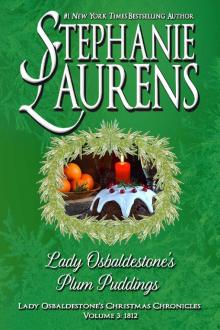 Lady Osbaldestone’s Plum Puddings: Lady Osbaldestone’s Christmas Chronicles Volume 3
Lady Osbaldestone’s Plum Puddings: Lady Osbaldestone’s Christmas Chronicles Volume 3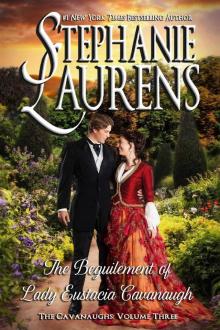 The Beguilement of Lady Eustacia Cavanagh: The Cavanaughs Volume 3
The Beguilement of Lady Eustacia Cavanagh: The Cavanaughs Volume 3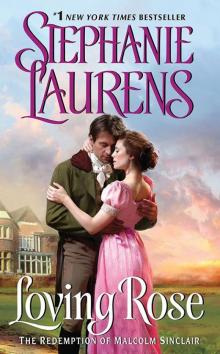 Loving Rose: The Redemption of Malcolm Sinclair (Casebook of Barnaby Adair)
Loving Rose: The Redemption of Malcolm Sinclair (Casebook of Barnaby Adair)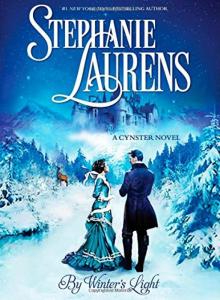 By Winter's Light
By Winter's Light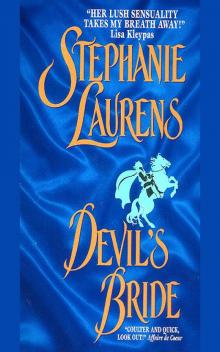 Devil's Bride
Devil's Bride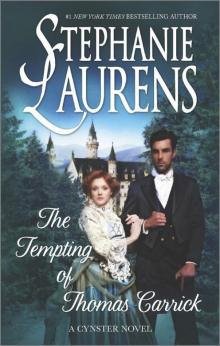 The Tempting of Thomas Carrick
The Tempting of Thomas Carrick![Cynster [22.00] A Match for Marcus Cynster Read online](http://i1.bookreadfree.com/i/03/16/cynster_[22_00]_a_match_for_marcus_cynster_preview.jpg) Cynster [22.00] A Match for Marcus Cynster
Cynster [22.00] A Match for Marcus Cynster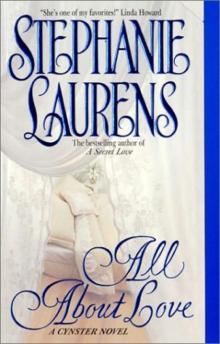 All About Love c-6
All About Love c-6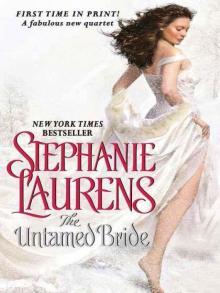 Cobra 01 The Untamed Bride
Cobra 01 The Untamed Bride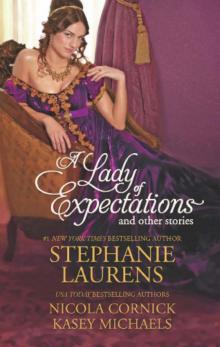 A Lady of Expectations and Other Stories
A Lady of Expectations and Other Stories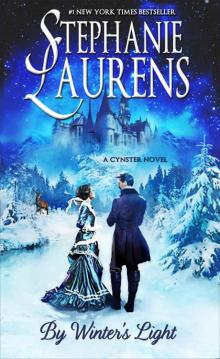 By Winter's Light_A Cynster Novel
By Winter's Light_A Cynster Novel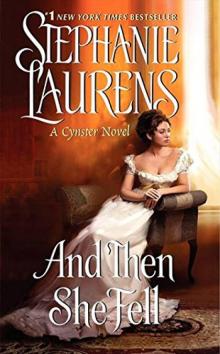 And Then She Fell
And Then She Fell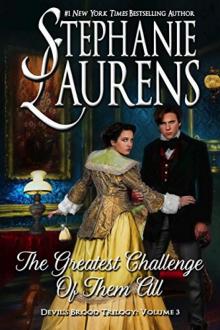 The Greatest Challenge of Them All
The Greatest Challenge of Them All The Edge of Desire
The Edge of Desire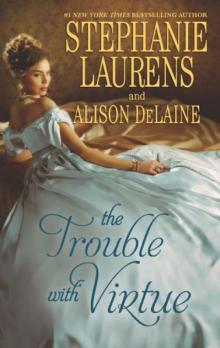 The Trouble With Virtue: A Comfortable WifeA Lady by Day
The Trouble With Virtue: A Comfortable WifeA Lady by Day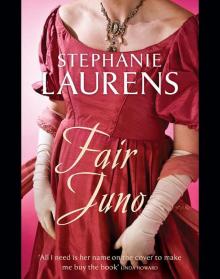 Fair Juno
Fair Juno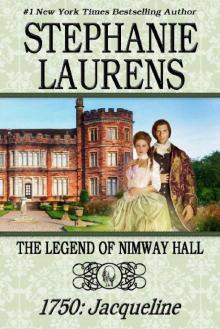 THE LEGEND OF NIMWAY HALL: 1750 - JACQUELINE
THE LEGEND OF NIMWAY HALL: 1750 - JACQUELINE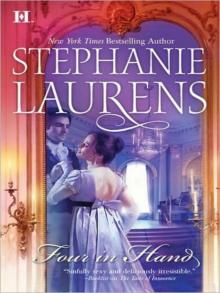 Four In Hand
Four In Hand The Reckless Bride
The Reckless Bride Stephanie Laurens Rogues' Reform Bundle
Stephanie Laurens Rogues' Reform Bundle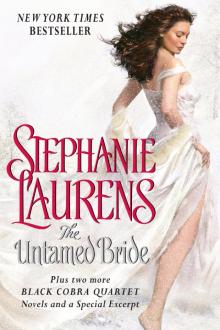 The Untamed Bride Plus Black Cobra 02-03 and Special Excerpt
The Untamed Bride Plus Black Cobra 02-03 and Special Excerpt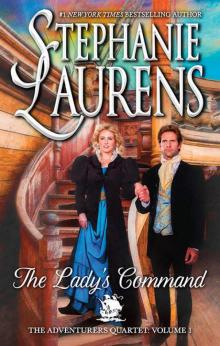 The Lady's Command (Adventurers Quartet #1)
The Lady's Command (Adventurers Quartet #1)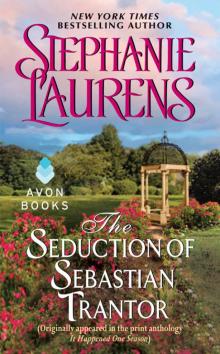 The Seduction of Sebastian Trantor
The Seduction of Sebastian Trantor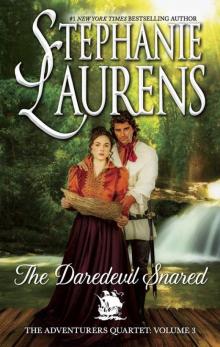 The Daredevil Snared (The Adventurers Quartet Book 3)
The Daredevil Snared (The Adventurers Quartet Book 3)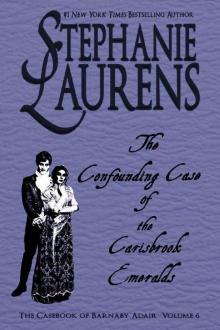 The Confounding Case Of The Carisbrook Emeralds (The Casebook of Barnaby Adair 6)
The Confounding Case Of The Carisbrook Emeralds (The Casebook of Barnaby Adair 6) Lord of the Privateers (The Adventurers Quartet)
Lord of the Privateers (The Adventurers Quartet)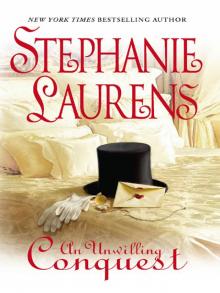 An Unwilling Conquest
An Unwilling Conquest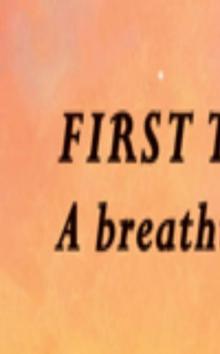 Brazen Bride
Brazen Bride On a Wild Night
On a Wild Night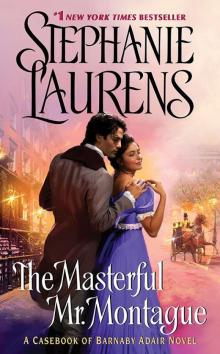 The Masterful Mr. Montague: A Casebook of Barnaby Adair Novel
The Masterful Mr. Montague: A Casebook of Barnaby Adair Novel Lord of the Privateers
Lord of the Privateers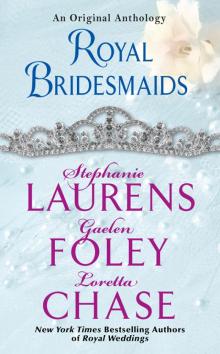 Royal Bridesmaids
Royal Bridesmaids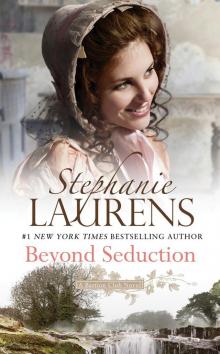 Beyond Seduction
Beyond Seduction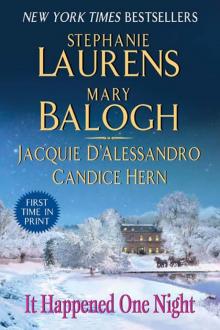 It Happened One Night
It Happened One Night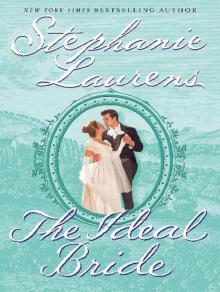 The Ideal Bride
The Ideal Bride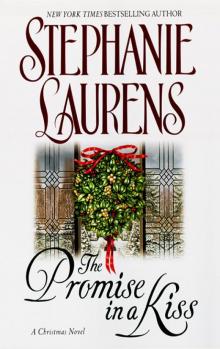 The Promise in a Kiss
The Promise in a Kiss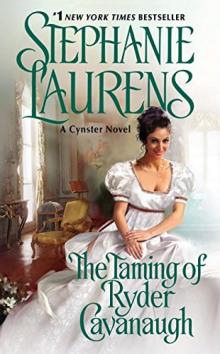 The Taming of Ryder Cavanaugh
The Taming of Ryder Cavanaugh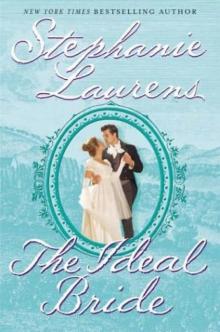 The Ideal Bride c-12
The Ideal Bride c-12 All About Love
All About Love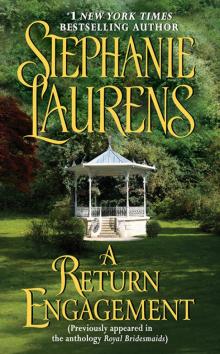 A Return Engagement
A Return Engagement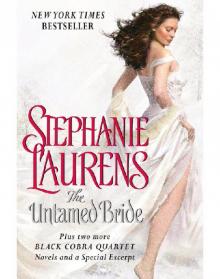 The Untamed Bride Plus Two Full Novels and Bonus Material
The Untamed Bride Plus Two Full Novels and Bonus Material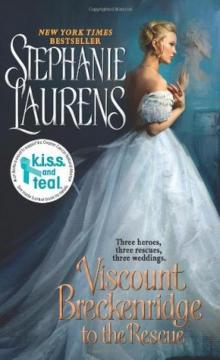 Viscount Breckenridge to the Rescue
Viscount Breckenridge to the Rescue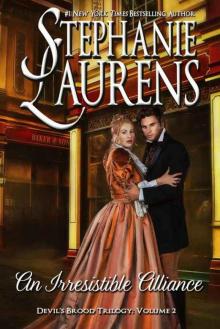 An Irresistible Alliance (Cynsters Next Generation Novels Book 5)
An Irresistible Alliance (Cynsters Next Generation Novels Book 5)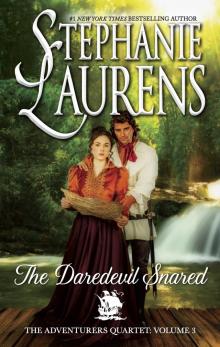 The Daredevil Snared
The Daredevil Snared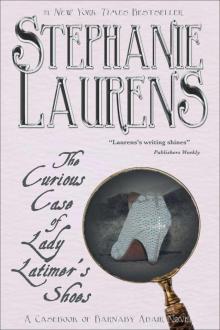 The Curious Case of Lady Latimer's Shoes: A Casebook of Barnaby Adair Novel
The Curious Case of Lady Latimer's Shoes: A Casebook of Barnaby Adair Novel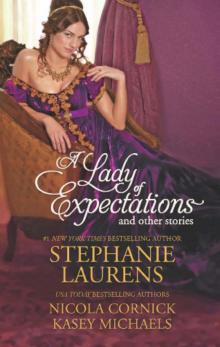 A Lady of Expectations and Other Stories: A Lady of ExpectationsThe Secrets of a CourtesanHow to Woo a Spinster
A Lady of Expectations and Other Stories: A Lady of ExpectationsThe Secrets of a CourtesanHow to Woo a Spinster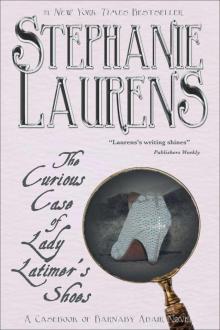 The Curious Case of Lady Latimer's Shoes: A Casebook of Barnaby Adair Novel (The Casebook of Barnaby Adair)
The Curious Case of Lady Latimer's Shoes: A Casebook of Barnaby Adair Novel (The Casebook of Barnaby Adair)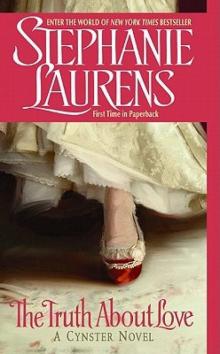 The Truth About Love
The Truth About Love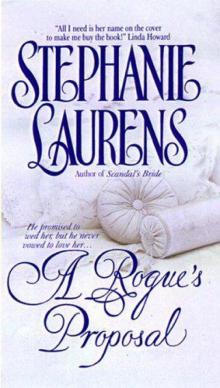 A Rogue's Proposal
A Rogue's Proposal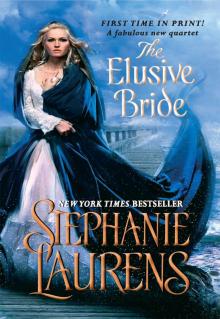 The Elusive Bride
The Elusive Bride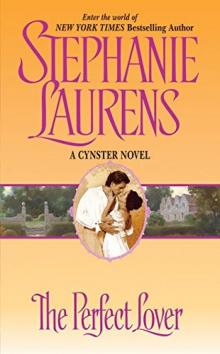 The Perfect Lover
The Perfect Lover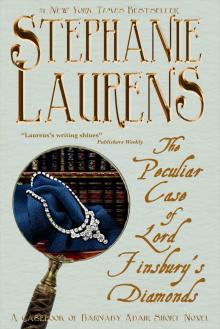 The Peculiar Case of Lord Finsbury's Diamonds: A Casebook of Barnaby Adair Short Novel
The Peculiar Case of Lord Finsbury's Diamonds: A Casebook of Barnaby Adair Short Novel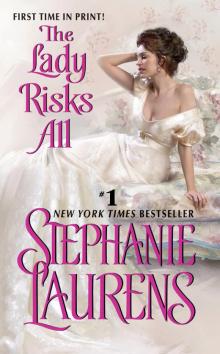 The Lady Risks All
The Lady Risks All The Murder at Mandeville Hall: The Casebook of Barnaby Adair: Volume 7
The Murder at Mandeville Hall: The Casebook of Barnaby Adair: Volume 7 All About Passion
All About Passion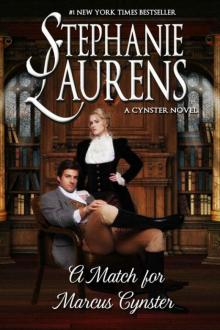 A Match for Marcus Cynster
A Match for Marcus Cynster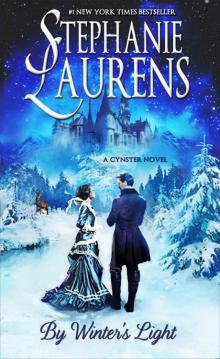 By Winter's Light: A Cynster Novel (Cynster Special Book 2)
By Winter's Light: A Cynster Novel (Cynster Special Book 2)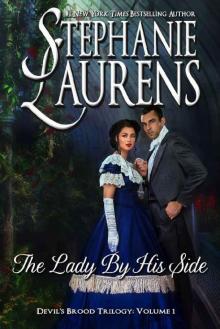 The Lady By His Side
The Lady By His Side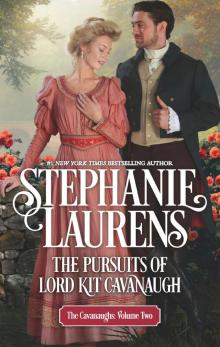 The Pursuits of Lord Kit Cavanaugh
The Pursuits of Lord Kit Cavanaugh Tangled Reins
Tangled Reins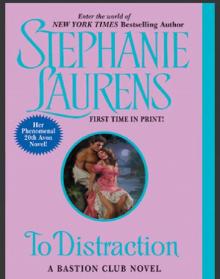 To Distraction
To Distraction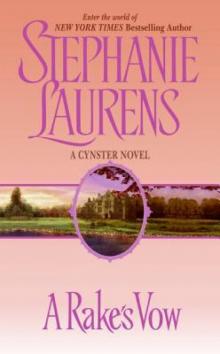 A Rake's Vow
A Rake's Vow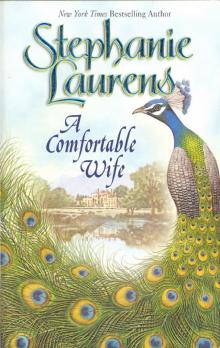 A Comfortable Wife
A Comfortable Wife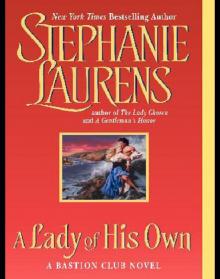 A Lady of His Own bc-3
A Lady of His Own bc-3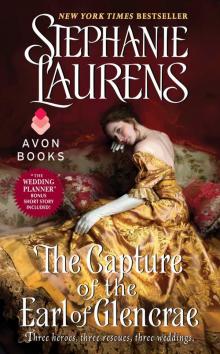 The Capture of the Earl of Glencrae
The Capture of the Earl of Glencrae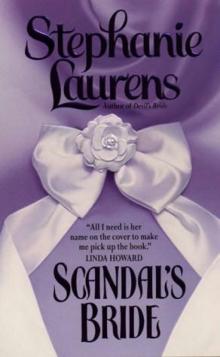 Scandals Bride c-3
Scandals Bride c-3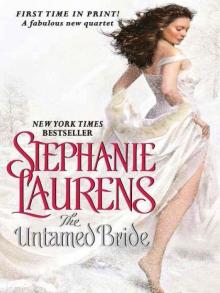 Untamed Bride
Untamed Bride The Brazen Bride
The Brazen Bride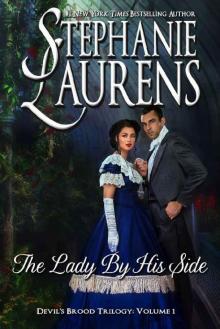 The Lady By His Side (Cynsters Next Generation Novels Book 4)
The Lady By His Side (Cynsters Next Generation Novels Book 4)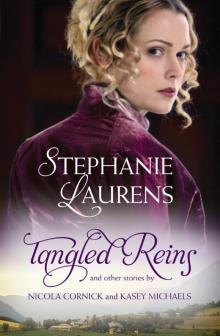 Tangled Reins and Other Stories
Tangled Reins and Other Stories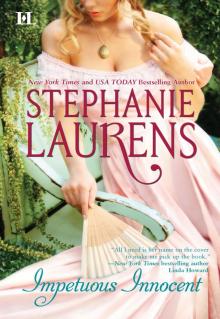 Impetuous Innocent
Impetuous Innocent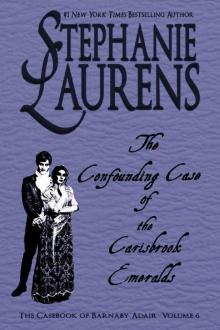 The Confounding Case Of The Carisbrook Emeralds
The Confounding Case Of The Carisbrook Emeralds Stephanie Laurens - B 6 Beyond Seduction
Stephanie Laurens - B 6 Beyond Seduction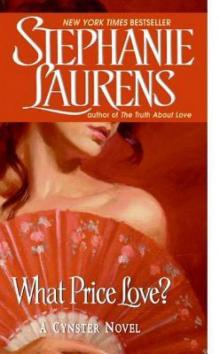 What Price Love?
What Price Love?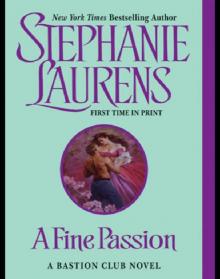 A Fine Passion
A Fine Passion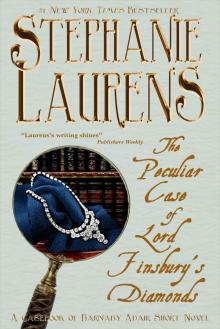 The Peculiar Case of Lord Finsbury's Diamonds: A Casebook of Barnaby Adair Short Novel (The Casebook of Barnaby Adair)
The Peculiar Case of Lord Finsbury's Diamonds: A Casebook of Barnaby Adair Short Novel (The Casebook of Barnaby Adair)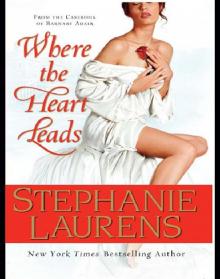 Where the Heart Leads
Where the Heart Leads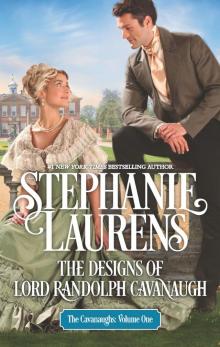 The Designs of Lord Randolph Cavanaugh
The Designs of Lord Randolph Cavanaugh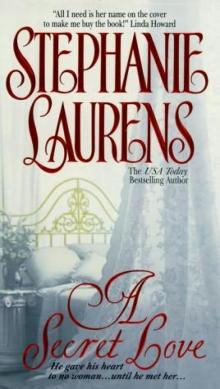 A Secret Love c-5
A Secret Love c-5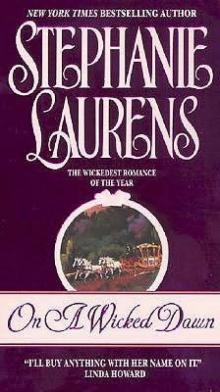 On a Wicked Dawn c-10
On a Wicked Dawn c-10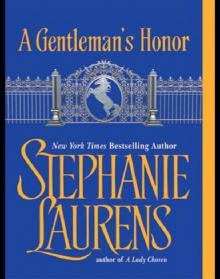 A Gentleman's Honor
A Gentleman's Honor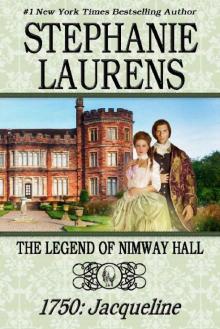 THE LEGEND OF NIMWAY HALL_1750_JACQUELINE
THE LEGEND OF NIMWAY HALL_1750_JACQUELINE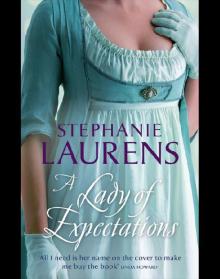 A Lady of Expectations
A Lady of Expectations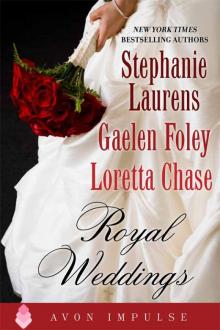 Royal Weddings: An Original Anthology
Royal Weddings: An Original Anthology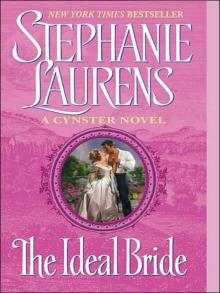 The Ideal Bride (Cynster Novels)
The Ideal Bride (Cynster Novels) Mastered by Love
Mastered by Love A Buccaneer at Heart
A Buccaneer at Heart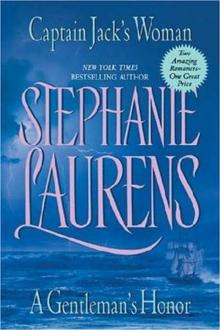 Captain Jack’s Woman / A Gentleman's Honor
Captain Jack’s Woman / A Gentleman's Honor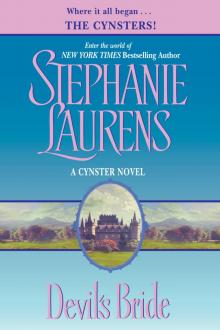 Devil's Bride with Bonus Material
Devil's Bride with Bonus Material A Lady of His Own
A Lady of His Own A Secret Love
A Secret Love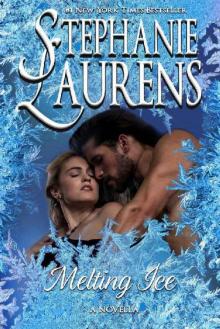 Melting Ice
Melting Ice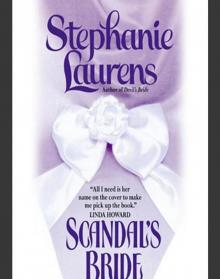 Scandal's Bride
Scandal's Bride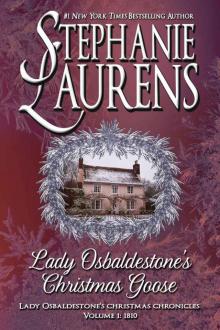 Lady Osbaldestone’s Christmas Goose
Lady Osbaldestone’s Christmas Goose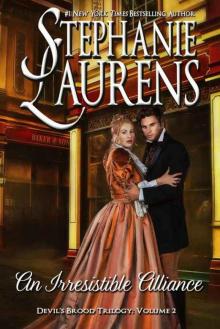 An Irresistible Alliance
An Irresistible Alliance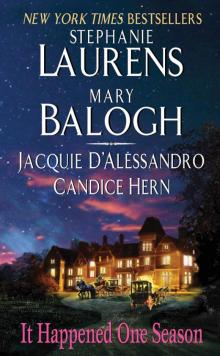 It Happened One Season
It Happened One Season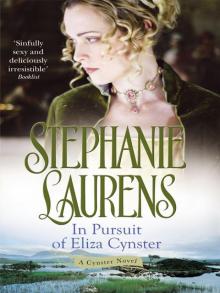 In Pursuit Of Eliza Cynster
In Pursuit Of Eliza Cynster Captain Jack's Woman
Captain Jack's Woman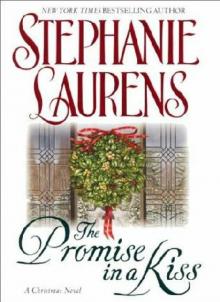 The promise in a kiss c-8
The promise in a kiss c-8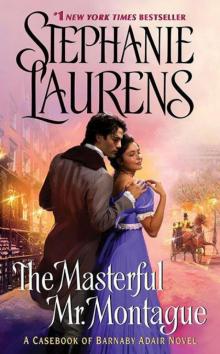 The Masterful Mr. Montague
The Masterful Mr. Montague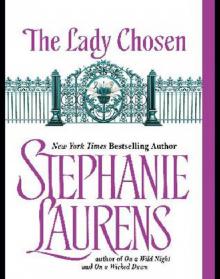 The Lady Chosen
The Lady Chosen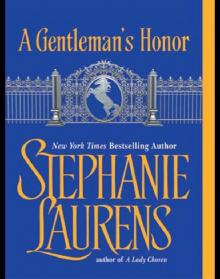 A Gentleman's Honor bc-2
A Gentleman's Honor bc-2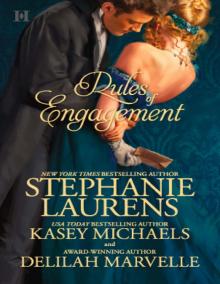 Rules of Engagement: The Reasons for MarriageThe Wedding PartyUnlaced (Lester Family)
Rules of Engagement: The Reasons for MarriageThe Wedding PartyUnlaced (Lester Family) Secrets of a Perfect Night
Secrets of a Perfect Night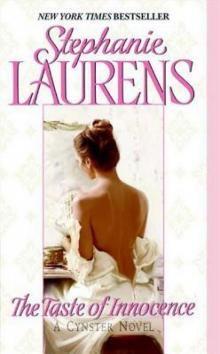 The Taste of Innocence
The Taste of Innocence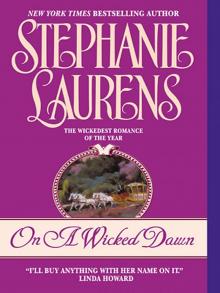 On A Wicked Dawn
On A Wicked Dawn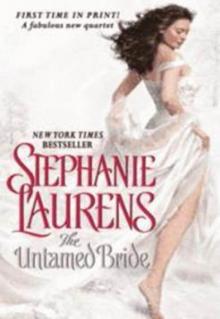 The Untamed Bride
The Untamed Bride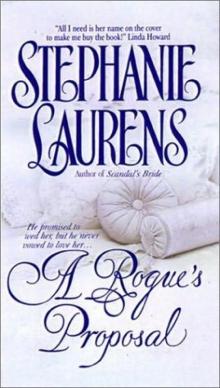 A Rogues Proposal c-4
A Rogues Proposal c-4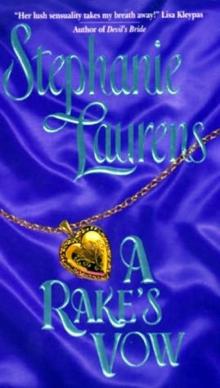 Rakes Vow c-2
Rakes Vow c-2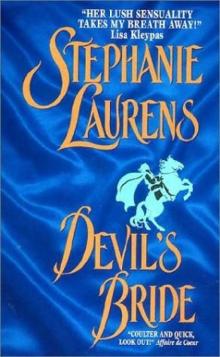 Devils Bride c-1
Devils Bride c-1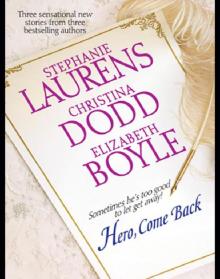 Hero, Come Back
Hero, Come Back On a Wild Night c-8
On a Wild Night c-8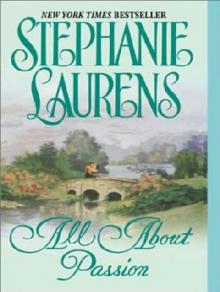 All About Passion c-7
All About Passion c-7